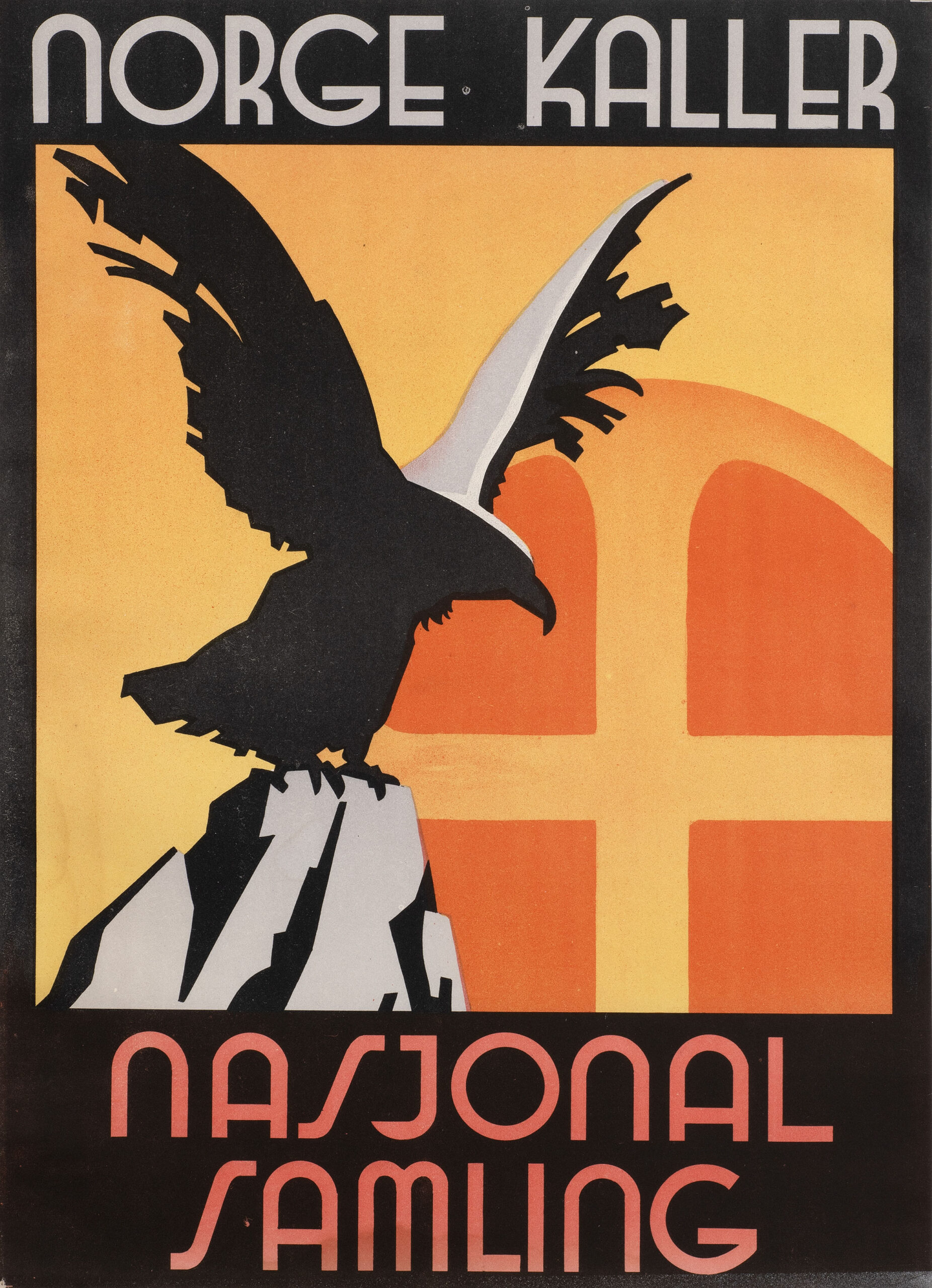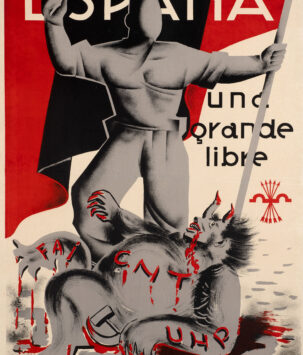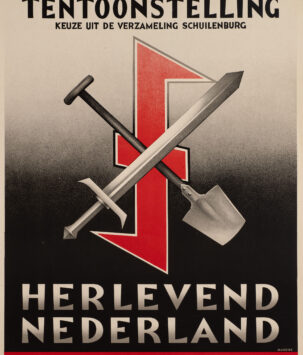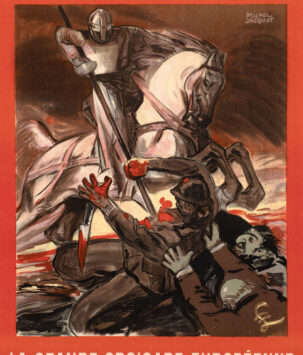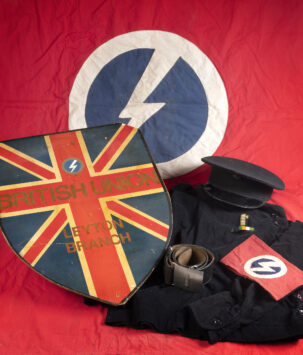Norway Calling
Election poster promoting Norway’s far-right Nasjonal Samling (National Assembly) party, founded in May 1933 by Vidkun Quisling. The sun in the form of a pagan sun cross rises behind a raven, symbolizing a new dawn in the form of a cultural and national rebirth; the yearning for which couldn’t be stronger across the West today.
The raven was venerated in old Norse Viking mythology as the divine messenger of Odin, and akin to the German National Socialists they were modeled on, the Nasjonal Samling rejected Christianity and drew much of its imagery from paganism which they saw as a more authentically Norwegian faith. The party’s paramilitary Hirden for example, is a pre-Christian medieval term loosely translated as the King’s ‘hearth-guard’ and would, in similar fashion, serve as the party leader’s modern praetorian guard. Although the party never enjoyed any electoral success, Quisling’s Nasjonal Samling came to power by collaborating with the Germans upon their invasion of Norway. While Quisling was nominally appointed as head of state by the Germans, real power in occupied Norway was held by the German Reichskommissar Josef Terboven. Thanks to efficient German economic management Norway’s production capacity remained largely intact despite losing all its major trading partners. Following his deposition in 1945, the very term ‘Quisling’ would later become synonymous with ‘traitor’ in the Scandinavian languages.
As with other notable fascists such as Oswald Mosley or Benito Mussolini, Quisling was an altruist who began his political career as a socialist, drawn to its idealistic principles and believing in the betterment of humanity. Alongside his English and Italian compatriots, it is likely Quisling realized through his travels the futility of the internationalist sentiment behind traditional socialism, and that in order for socialism to succeed it must pertain to sociocultural realities by remaining within national bounds and allowed to flourish separately.
A famous Norwegian supporter of both the Quisling and Hitler was none other than Nobel Prize laureate Knut Hamsun, who wrote a eulogy for Hitler a week after his death: “He was a warrior, a warrior for mankind, and a prophet of the gospel of justice for all nations.” His Nobel-winning novel Growth of the Soil heavily influenced back-to-the-land initiatives espoused by right-wing agrarians, notably manifesting in the famous German slogan “Blut und Boden” (Blood and Soil).
Free shipping on orders over $50!
- Satisfaction Guaranteed
- No Hassle Refunds
- Secure Payments
Election poster promoting Norway’s far-right Nasjonal Samling (National Assembly) party, founded in May 1933 by Vidkun Quisling. The sun in the form of a pagan sun cross rises behind a raven, symbolizing a new dawn in the form of a cultural and national rebirth; the yearning for which couldn’t be stronger across the West today.
The raven was venerated in old Norse Viking mythology as the divine messenger of Odin, and akin to the German National Socialists they were modeled on, the Nasjonal Samling rejected Christianity and drew much of its imagery from paganism which they saw as a more authentically Norwegian faith. The party’s paramilitary Hirden for example, is a pre-Christian medieval term loosely translated as the King’s ‘hearth-guard’ and would, in similar fashion, serve as the party leader’s modern praetorian guard. Although the party never enjoyed any electoral success, Quisling’s Nasjonal Samling came to power by collaborating with the Germans upon their invasion of Norway. While Quisling was nominally appointed as head of state by the Germans, real power in occupied Norway was held by the German Reichskommissar Josef Terboven. Thanks to efficient German economic management Norway’s production capacity remained largely intact despite losing all its major trading partners. Following his deposition in 1945, the very term ‘Quisling’ would later become synonymous with ‘traitor’ in the Scandinavian languages.
As with other notable fascists such as Oswald Mosley or Benito Mussolini, Quisling was an altruist who began his political career as a socialist, drawn to its idealistic principles and believing in the betterment of humanity. Alongside his English and Italian compatriots, it is likely Quisling realized through his travels the futility of the internationalist sentiment behind traditional socialism, and that in order for socialism to succeed it must pertain to sociocultural realities by remaining within national bounds and allowed to flourish separately.
A famous Norwegian supporter of both the Quisling and Hitler was none other than Nobel Prize laureate Knut Hamsun, who wrote a eulogy for Hitler a week after his death: “He was a warrior, a warrior for mankind, and a prophet of the gospel of justice for all nations.” His Nobel-winning novel Growth of the Soil heavily influenced back-to-the-land initiatives espoused by right-wing agrarians, notably manifesting in the famous German slogan “Blut und Boden” (Blood and Soil).
